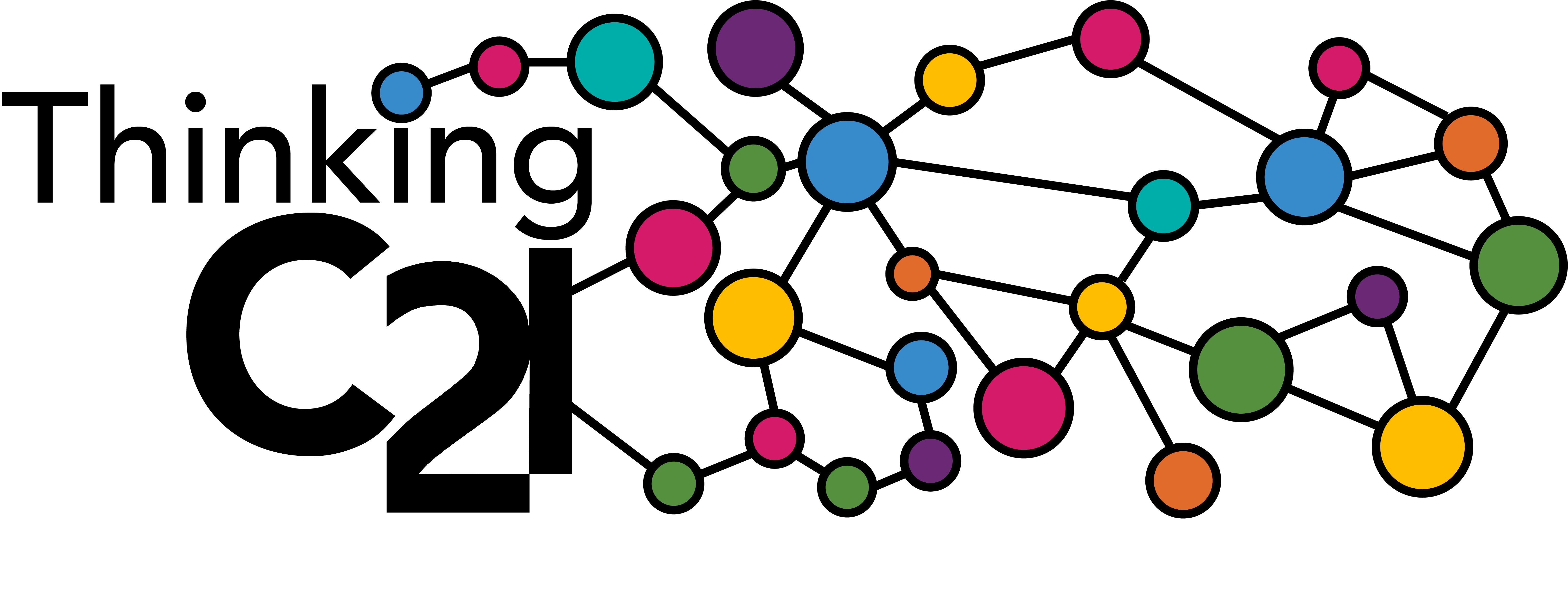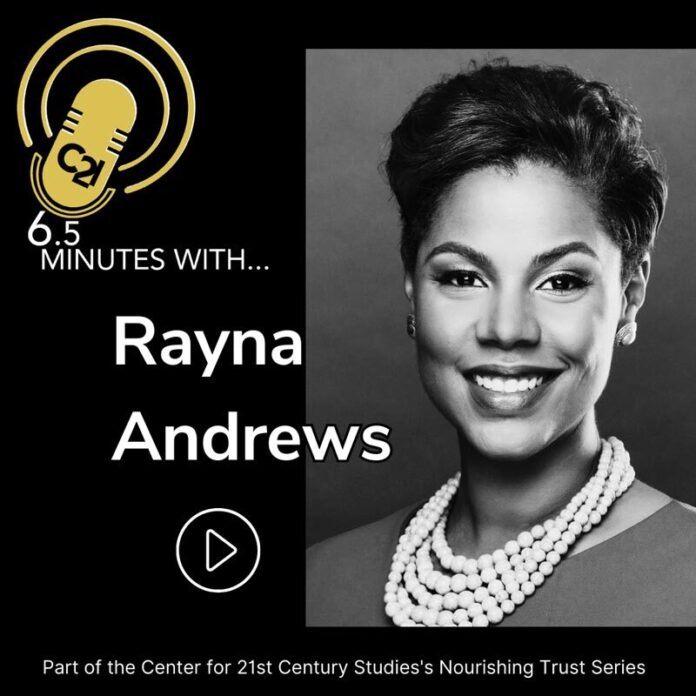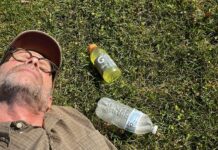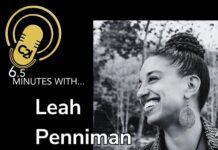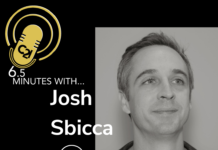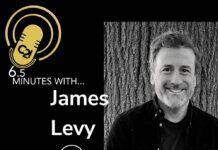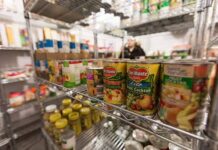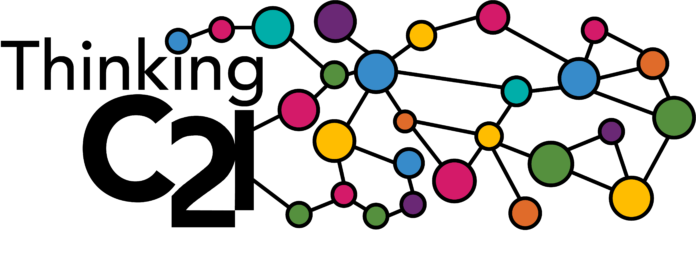Continuing the conversation about the role of trust in food justice efforts, C21 talks with Rayna Andrews, Executive Director, Advancement & Engagement for Food for Health in Milwaukee.
Transcript of the podcast:
Elania Nelson:
You’re listening to 6.5 Minutes with C21, an audio introduction to the topics, experts, and leaders who take part in the conversations hosted by the Center for 21st Century Studies. I’m Elania Nelson, a graduate student fellow at the Center. This week, our Deputy Director, Nicole Welk-Joerger, interviews Rayna Andrews, the Executive Director of Advancement and Engagement at Food For Health in Milwaukee.
Nicole Welk-Joerger:
So, how did you get to your most recent and current projects related to the Food For Health Organization, and the Healthy Food Movement?
Rayna Andrews:
My journey has really been a twisted path having worked in higher education, worked in public accounting, having worked in government affairs, and my last major stop being a nonprofit working in food banking. And I would really give a lot of credit to working in food banking and really understanding the plight of food insecurity in our community. I started the Healthy Food Movement because in the infamous words of the late great Whitney Houston, “I believe the children are our future, teach them well and let them lead the way.” And I feel like food literacy was a big part of the equation. And when I transitioned out of food banking, I hung up my shingle for the Healthy Food Movement and went full-time. And really, the Healthy Food Movement is a wellness company focused on food security and food literacy in underserved communities. While I was doing that, I had a meal delivery program where I would deliver meals weekly to intergenerational families during COVID to let them know that they weren’t forgotten, that they were loved on. I started leading the Racial Wealth Gap to talk about the wealth gap and why food insecurity — just focusing on food —- will never solve the problem. It’s really talking about the intersectionality and how as practitioners, we have to get out of our box to really look at the bigger picture. Finally, I started my podcast, Spilled Milk, to introduce people to the bigger issues around the food system from a much bigger lens. And while I was doing that, I caught the lens, or the eye, of Food For Health where I’m now the Executive Director of Advancement and Engagement. So I still do some outside work with the Healthy Food Movement, particularly around my book. But my main work with Food For Health is Food is Medicine and I absolutely love it.
Nicole Welk-Joerger:
How would you describe Food For Health and the vision of this program, and other partnerships with it across Milwaukee?
Rayna Andrews:
Absolutely. So, Food For Health is a charitable program focused on low-income populations. Think of our neighbors who are living with obesity, diabetes, cardiovascular disease, hypertension, and they’re living in food deserts. They don’t have access to equitable access to healthy and safe food. And Nicole, I would be remiss if I didn’t describe what I mean by equitable access, but it’s really not having access to healthy and safe food. The corner store that has outdated, nutrient-deficient canned goods, and past produce like rotten bananas and soft apples really doesn’t count as food, right? So, that’s why I’m talking about equitable access to food. So, we’re working with individuals, our neighbors, who are living with a chronic disease, and we provide our medically tailored meal program, nearly removing every barrier for them to be healthy. So not only do they get meals delivered to their doorstep, not only are the meals fresh, nutritious, and delicious, right? But they are also tailored to their disease state. We then get health coaches, they receive biometric screenings — almost like a health report card — and in their health coaching sessions, they go through how to get them from an unhealthy to healthy state. They learn how to do their own biometrics. And then food literacy, that education is a key piece. It’s really going back upstream and addressing the root cause of a lot of our health disparities.
Nicole Welk-Joerger:
You talked a bit about your very specific definitions for access and equity. I’d also like to hear your definition of food justice.
Rayna Andrews:
I would say food justice is social justice, and they go hand-in-hand. It’s like you can’t fight for your right to vote, you can’t fight for fair pay, you can’t fight against police brutality and not fight for your most basic human need, which is the right to access healthy and safe food. Some people call it food deserts. I think more from an activist perspective, you could go as far as calling food apartheid, which is the strategic removal and suppression of food in vulnerable communities. I look forward to in the near future doing some studies that look at the intersectionality of nutrition deficit and violence. If we’re truly defining the issue, it’s food insecurity. Someone is food insecure means that you have not had enough food to eat within the last 12 months, and you couldn’t afford that food, right? And so it’s one thing and not being able to afford it. It’s another thing and not getting enough nutrients for your body to survive. And so I think there should be a call to action and a serious need to flip the narrative. So that’s what I mean by food justice is having access to healthy and safe food consistently and reliably. And so when I talk about food justice it’s really at a systemic level, and it’s a pursuit of food sovereignty where everyone across the food chain gets an opportunity to eat and support their family. That to me is real food justice.
Nicole Welk-Joerger:
How might we want to think about the relationship between trust and food more generally, based on your work and expertise?
Rayna Andrews:
Look at our emergency food system. When you look at the food pantries, meal programs and shelters, someone who is experiencing — and I’m speaking from experience — someone who is in dire need of food and shelter rehabilitation, they’re treated as if it’s good enough, you should be happy, you should be satisfied. And these rules, these ideas, are being created by people who lack that experience. And I think how you build trust is by bringing individuals on the ground — our neighbors who are experiencing these disparities — and you interview them, you incorporate them as a part of the process, as a part of the solution, as a leader in creating the solution. And not only listen, but you have to be committed to actually doing something about it, not still having philosophy that you know what’s best. And the way that I think of it is often this African proverb that says “if you want to go fast, go alone, if you want to go far, go together.” And I think a number of organizations that see these rapid results often die out rather quickly as well. I would dare to say that a number of the activities and actions are quite performative, and they’re in response to a point in time. And I think that’s a big reason why we see food insecurity perpetuated. That’s why we see health disparities perpetuated. That’s why we see a lot of community violence, housing shortage insecurity, perpetuated because it’s really a band-aid. I think if you build it with community and stakeholders that are catalytic, that can keep this moving even without you, which should be the goal, I think. Where you create it in concert, support the creation of resources, identify root systems that could be sustainable, and then let the people take it, and if they take it in a direction that you don’t agree with, you gave it away, so let it be. And I think that is the way to build trust. So it’s not just having the community trust you, it’s you building the muscle to trust that people know what’s best for them.
Elaina Nelson:
To further engage with this interview, other conversations, and the participatory research, and reading activities hosted by the Center — please visit our website at uwm.edu/c21. If not there, we hope to catch you when you have another 6.5 Minutes to spare.
